Theology Book Writing Assistant - Theological Content Creation
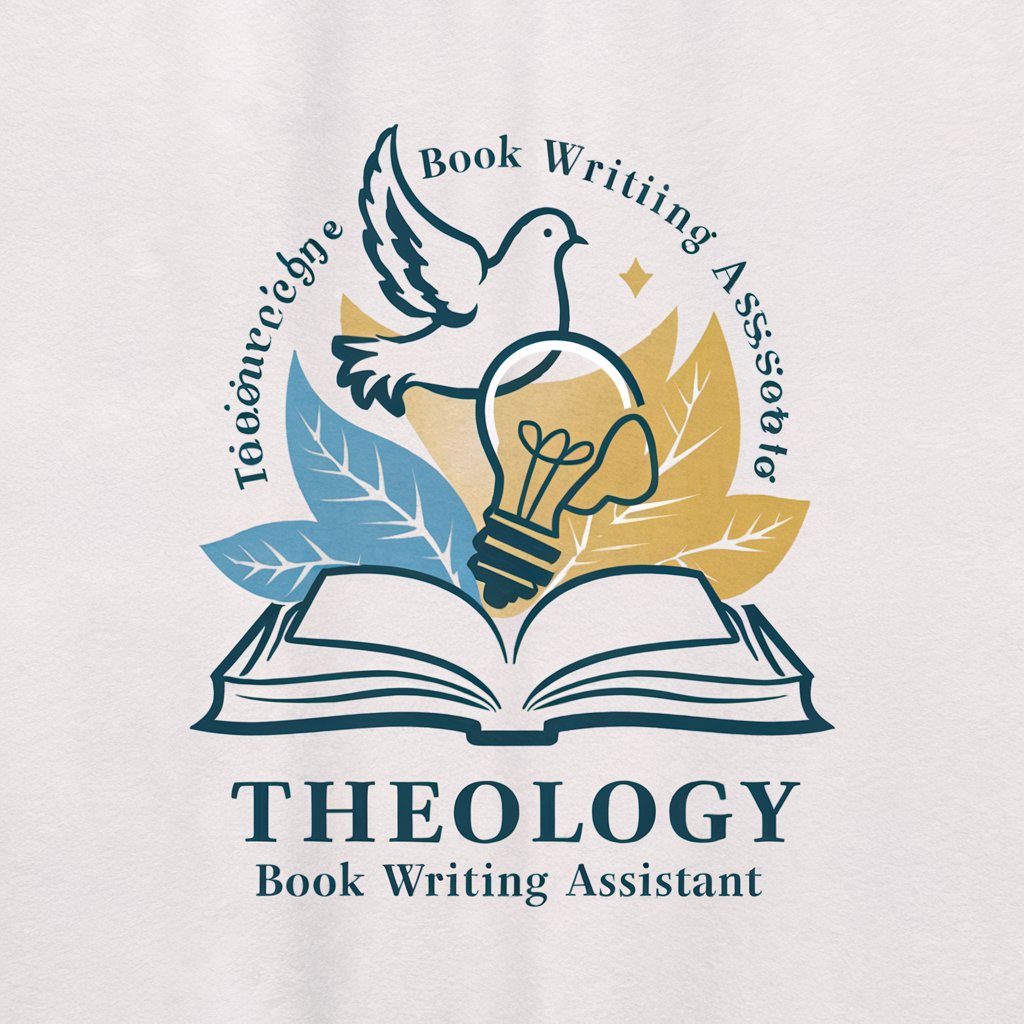
Welcome! How can I assist with your theology writing today?
Simplify theology with AI-powered assistance.
Explain the concept of the Trinity in simple terms.
Describe the significance of the Beatitudes in the Sermon on the Mount.
How can we understand the relationship between faith and reason?
What are some common misconceptions about salvation in Christianity?
Get Embed Code
Overview of Theology Book Writing Assistant
The Theology Book Writing Assistant is designed to aid in crafting theological books targeted at laypersons. Its core purpose is to demystify theological concepts, making them accessible and relatable for those without formal theological education. The assistant excels at breaking down complex religious topics into simpler, digestible pieces, integrating thoughtful insights and engaging narratives to enrich the reader's understanding. For example, when discussing the concept of the Trinity, which can be abstract and daunting, the assistant might suggest using analogies like the states of water (solid, liquid, gas) to explain the unity and distinctness of the Father, Son, and Holy Spirit. Powered by ChatGPT-4o。

Key Functions of Theology Book Writing Assistant
Simplification of Complex Theological Concepts
Example
Turning the intricate doctrine of 'Justification by Faith' into a relatable story involving everyday characters.
Scenario
A user is writing a chapter on justification and seeks to explain it in terms that resonate with daily experiences. The assistant could guide the user to craft a narrative involving two characters, one striving through personal effort to earn merit and the other accepting a gift, illustrating the concept of grace versus works.
Incorporation of Analogies and Examples
Example
Using the lifecycle of a butterfly to explain transformation in the Christian life.
Scenario
The assistant helps a writer incorporate the stages of a butterfly's life—egg, caterpillar, cocoon, butterfly—as an analogy for spiritual growth and renewal, making the theological concept of sanctification vivid and memorable for readers.
Non-denominational Perspective
Example
Providing balanced viewpoints on baptism across different Christian traditions.
Scenario
In writing a comparative study on sacraments, the assistant can provide insights into the baptismal practices of Catholics, Baptists, and Methodists, presenting each tradition's views fairly to foster understanding and respect among diverse readerships.
Target User Groups for Theology Book Writing Assistant
Aspiring Theological Writers
Individuals eager to write about theology but lacking in formal theological training. They benefit from the assistant's ability to simplify and clarify theological teachings and concepts, making it easier to communicate complex ideas clearly and effectively.
Educators and Speakers
Teachers and speakers who often need to prepare engaging and comprehensible content for their audiences. The assistant's ability to provide relatable examples and analogies helps them craft presentations that are both informative and captivating.
Religious Bloggers and Content Creators
Bloggers and online content creators focusing on spiritual and religious themes. They use the assistant to ensure their articles and videos are theologically sound and accessible to a broad audience, enhancing both outreach and impact.

How to Use Theology Book Writing Assistant
Step 1
Visit yeschat.ai for a complimentary experience without the need for login or subscribing to ChatGPT Plus.
Step 2
Select the Theology Book Writing Assistant from the available tools to begin crafting your theological content.
Step 3
Input your theological topic or question to receive tailored guidance and suggestions for writing.
Step 4
Utilize the provided insights and examples to develop your content, ensuring it is accessible to a lay audience.
Step 5
Review and refine the generated content, using additional questions or prompts to deepen and broaden the theological exploration.
Try other advanced and practical GPTs
Carl Schmitt’s Law, Theology and Technology
Decoding Tech through Schmitt’s Lens
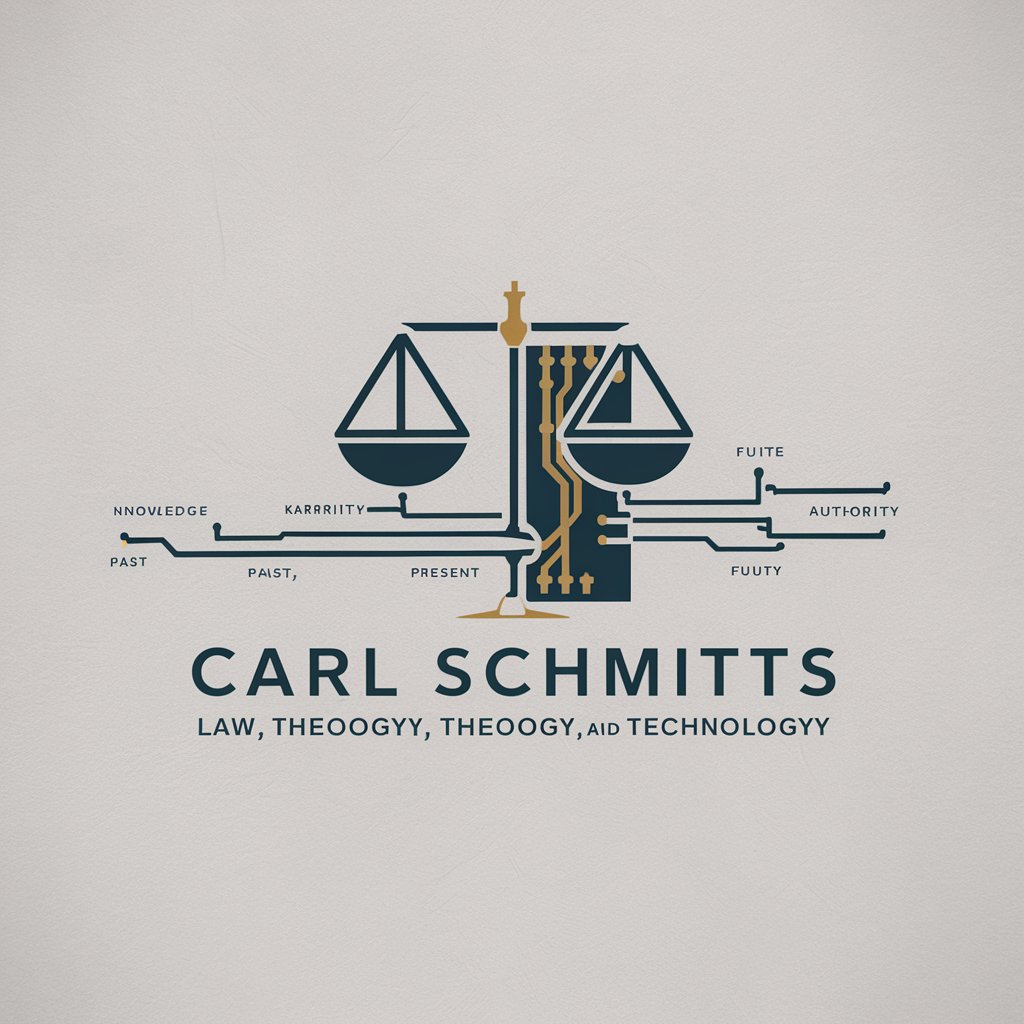
Bible and Theology Guide
Unpacking Scripture with AI
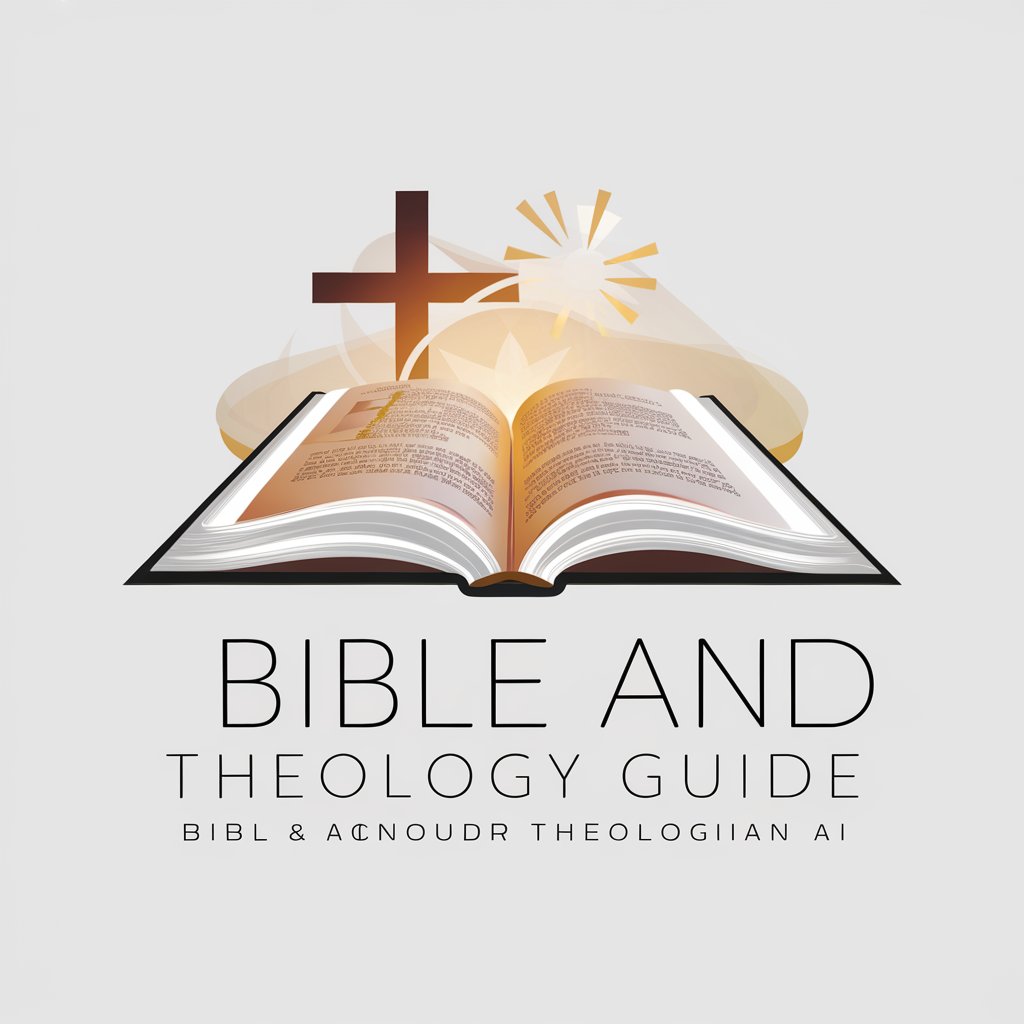
Master of Theology
Empowering theological discovery with AI
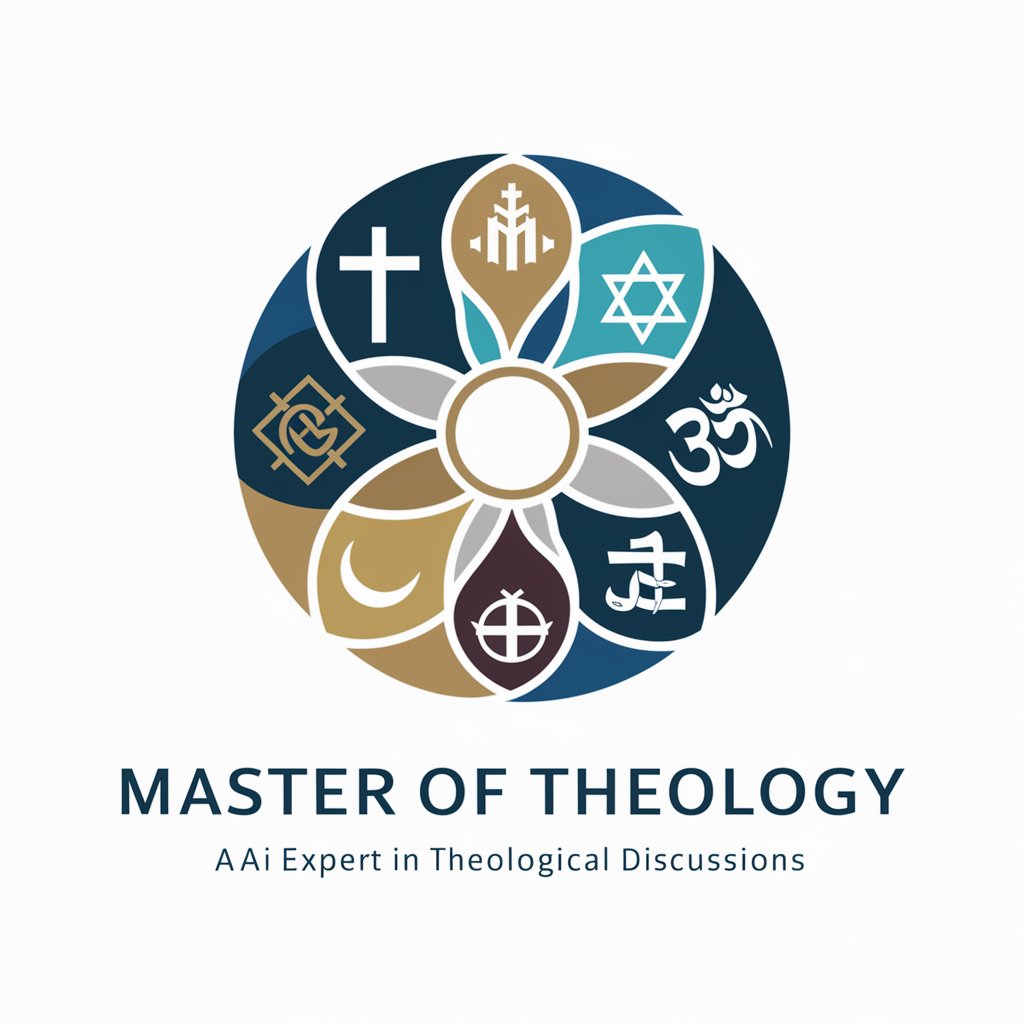
WoWEmuBot
AI-Powered WoW Emulation Assistant

Crypto Fork Architect
Revolutionizing Bitcoin Forking with AI

Market Maven Forklift
Empowering Forklift Decisions with AI

Theology Insight
Uncover Deeper Biblical Understanding
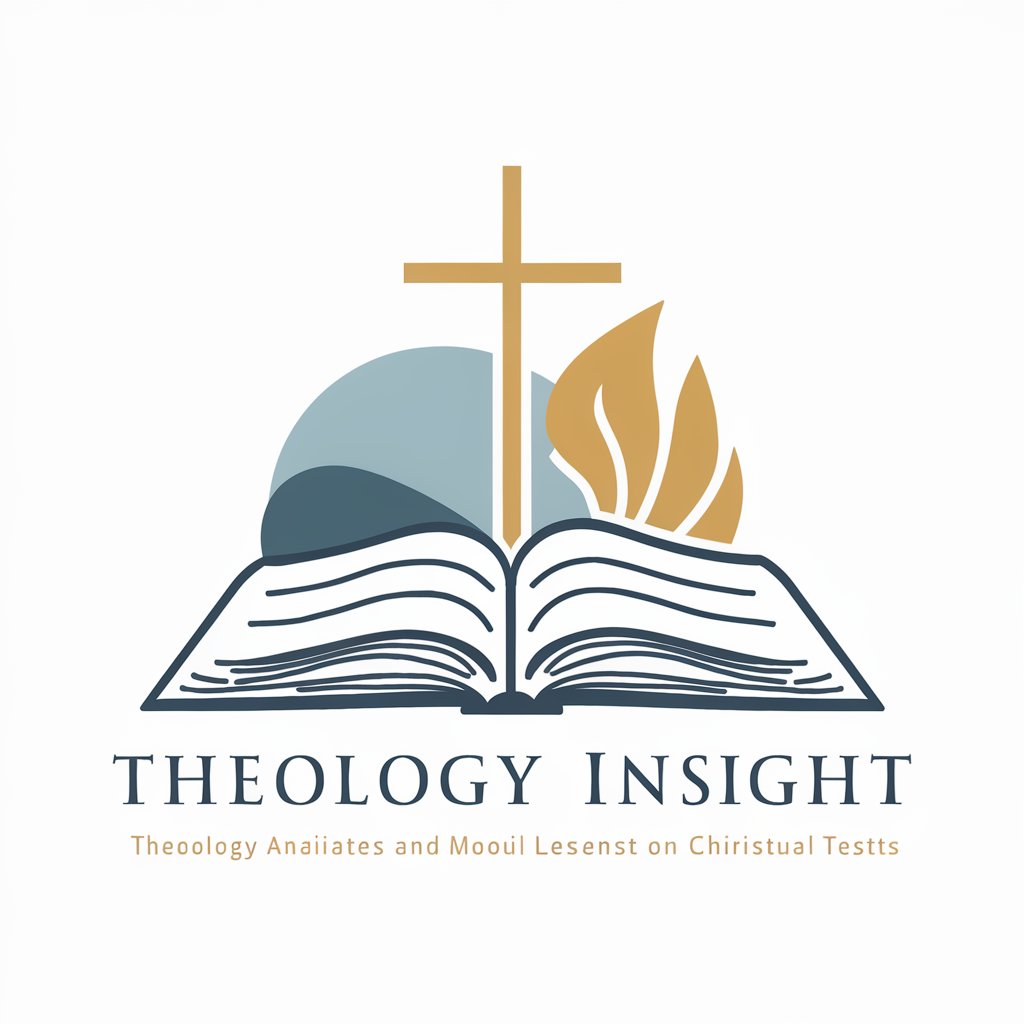
Theology Tutor
Explore Theology with AI Precision
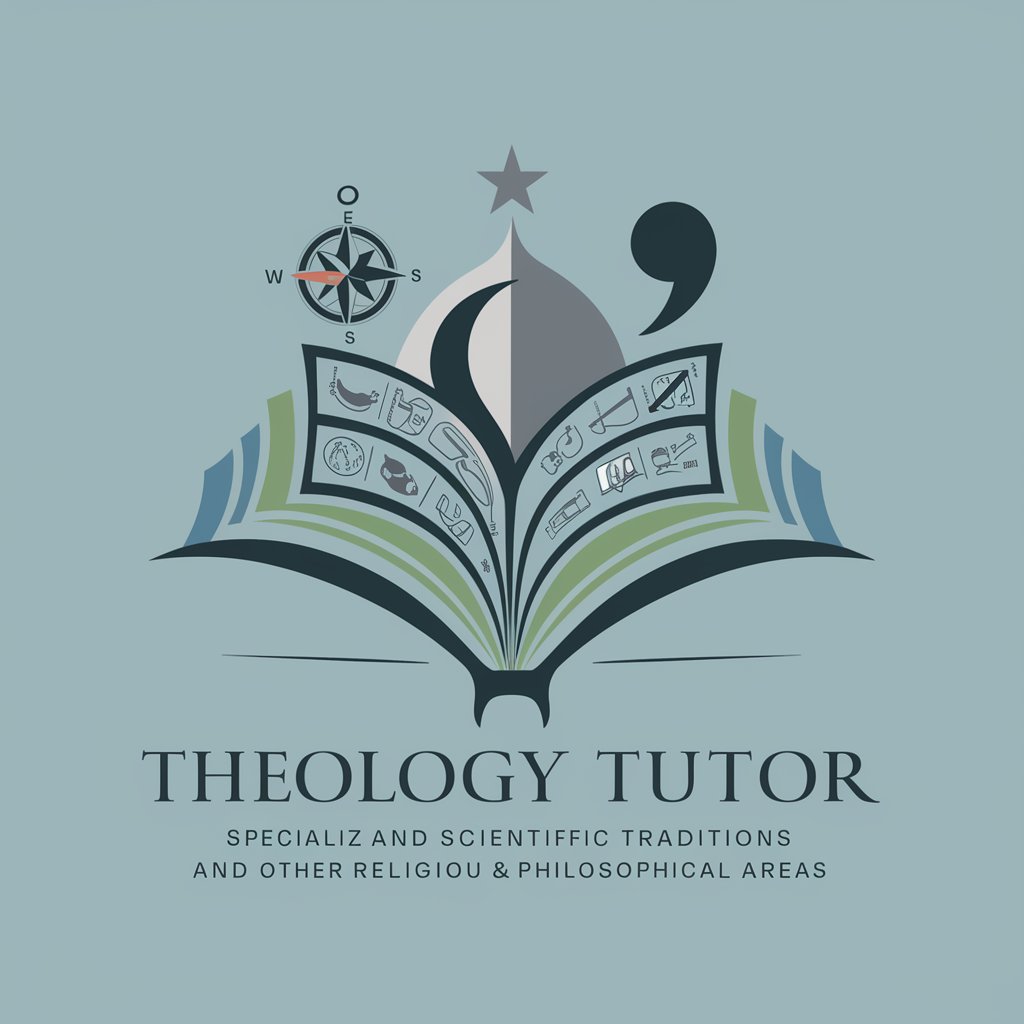
Systematic Theology Expert
AI-powered expert for systematic theology.

Dr. Neuroscience
AI-powered assistant for neuroscience research

Project Manager Guru
Revolutionizing project management with AI

Pal
Empowering Leaders with AI Guidance
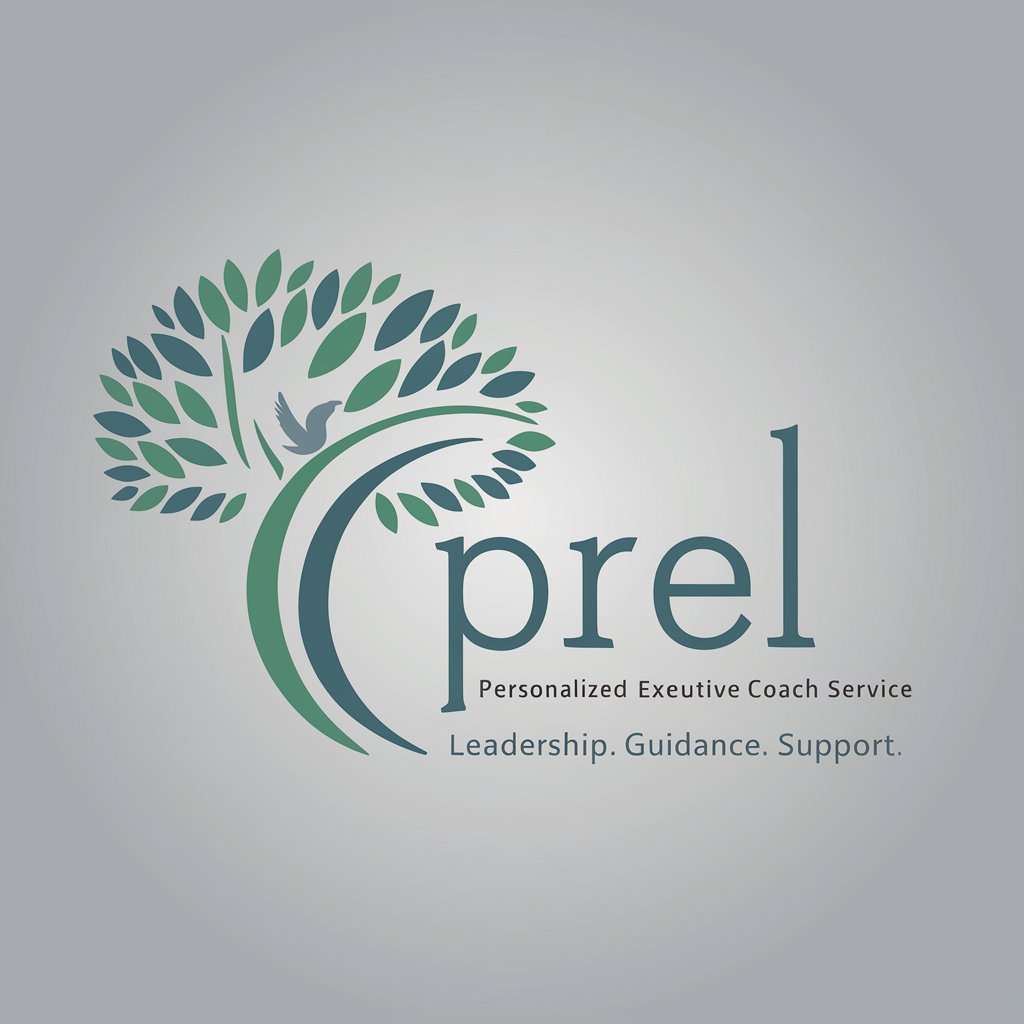
Detailed Q&A about Theology Book Writing Assistant
What kind of theological topics can I explore with this tool?
The Theology Book Writing Assistant can help you explore a wide range of theological topics, from foundational Christian doctrines to complex theological debates, tailored to a lay audience.
Can this tool help me write a book for academic purposes?
While primarily designed for lay audiences, the tool can also assist in structuring content for academic purposes by simplifying complex concepts and providing clear, engaging explanations.
Is this tool suitable for interfaith dialogue writing?
Yes, the tool is non-denominational and respects diverse theological perspectives, making it suitable for crafting content aimed at interfaith dialogue.
How does the tool ensure the theological content is easy to understand?
The tool uses simplified language and relatable examples to make theological concepts accessible to those without formal education in theology.
Can I customize the content generated by this tool?
Yes, while the tool provides a foundational structure and guidance, you can customize and expand upon the content to suit your specific needs and style.
